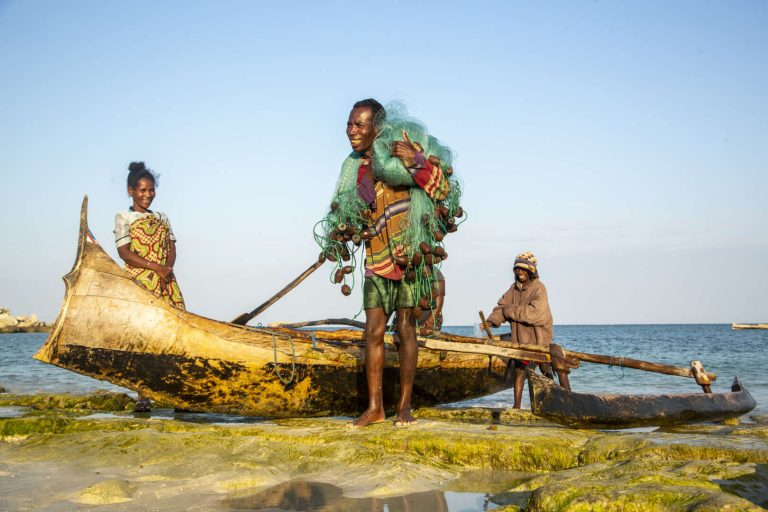 On this year’s International Day for Biological Diversity, we are celebrating the recent move by dozens of countries to improve the rights and crucial roles of coastal communities and small-scale fishers in managing and protecting the world’s oceans.
On this year’s International Day for Biological Diversity, we are celebrating the recent move by dozens of countries to improve the rights and crucial roles of coastal communities and small-scale fishers in managing and protecting the world’s oceans.
In a landmark declaration from the seventh meeting of the Organisation of African, Caribbean and Pacific States (OACPS), 79 ministerial representatives agreed to ‘support the explicit reference and recognition of the role of small-scale fishers and coastal communities, secure their rights and tenure, and prioritise locally-led governance and management systems in the upcoming Post-2020 Biodiversity Framework’.
The Framework is a plan to tackle the extinction emergency and protect 30 percent of the world’s lands and oceans by 2030 that governments are expected to agree on later this year.
At least 42 percent of all global land deemed to remain in good ecological condition is under the stewardship of Indigenous peoples and local communities, who are recognised as vital custodians of the world’s remaining biodiversity.
“The OACPS declaration is a great step towards securing the tenure rights of coastal communities, and recognising the pivotal role that small-scale fishers and local communities play in protecting biodiversity and sustainably governing their land and territories,” said Annie Tourette, Blue Ventures’ Head of Advocacy.
The signatories also pledged to improve small-scale fisheries value chains, and to increase transparency and collaboration in efforts to combat illegal, unregulated and unreported fishing − a pervasive threat to coastal fisheries in many of the countries in which Blue Ventures works.
“It’s a strong commitment from these states to improve transparency and protections for small-scale fishers and biodiversity,” said Tourette.
The declaration also reflects Blue Ventures’ position on the need to put communities at the centre of the UN’s proposed 30 by 30 goal.
Indigenous Peoples and local communities have proven to be better stewards of nature than governments, and global efforts enshrined in the Framework will only succeed with their full and effective participation.
Many of the coastal communities that Blue Ventures supports rely on marine biodiversity for food and jobs. Our work was founded on a belief that the best way to safeguard nature is to protect the human rights of those closest to it.
“If those who depend most on the territories and lands where they live are fully included in conservation planning, then people and nature can co-exist everywhere,” said Tourette.
“Indigenous Peoples and local communities have historically contributed least to the biodiversity crisis, and will suffer most from it,” she said.
However, these groups currently have no formal seat at the table at international negotiations. Recognised as parties to the Convention of Biodiversity (CBD), they are only permitted to attend the talks as observers, with no voting rights.
Blue Ventures published an open letter in March that calls on signatories to the CBD to recognise and respect the rights of Indigenous Peoples and local communities in the 30 by 30 target before they meet at the COP15 in October to finalise a rescue plan for nature.
The UN estimates that 1 million animal and plant species are now facing extinction, and that 75 percent of the earth’s land and about two thirds of the marine environment have been significantly altered by human action.
Making sure that communities are put first when making decisions about stopping biodiversity loss and ecosystem destruction is increasingly urgent.
“This strategy is key to securing a future for all life on earth,” said Tourette.























